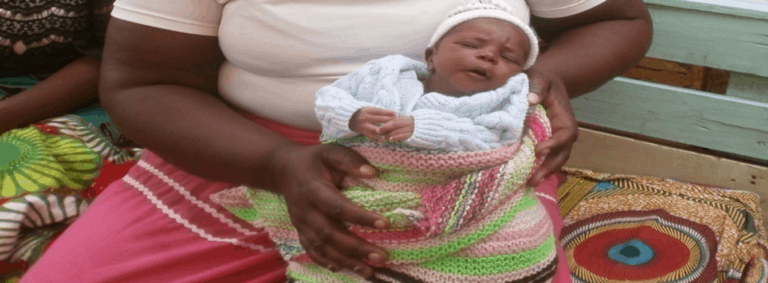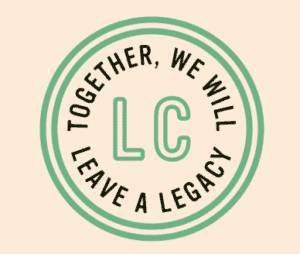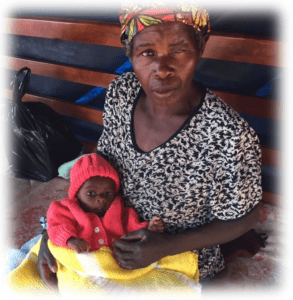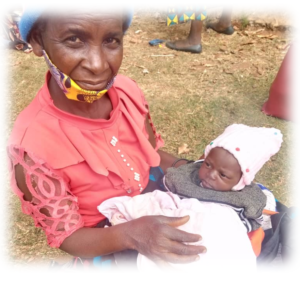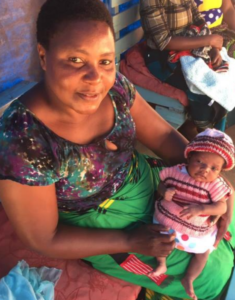In December nurses admitted 4 infants (2 babies of mothers with severe mental health issues, 1 orphan, and 1 baby whose mother was not producing breast milk). Baby Stella, who was enrolled in program along with her twin last month, died this month following one hospitalisation for diarrhea and a second visit to the Health Center for malaria. Nurses also admitted one postpartum woman who experienced a severe infection. Nurses visited 165 women and infants and distributed 640 tins of formula.
Baby Admission Story. JS is 16. She has struggled off and on with seizures for most of her life. At times they are better controlled, at other times, no matter how many pills she swallows, the seizures keep coming. As a result of the frequent seizures over many years, JS is developmentally delayed. Earlier in the year someone identified JS as an easy target. He attacked her, raped her, impregnated her and – as it was later discovered – infected her with HIV. Thankfully she was able to communicate the identity of her attacker, and he is currently imprisoned. But for her, there is no return to life before the attack. JS will struggle with the psychological and physical effects of this trauma for her personal eternity. This December JS gave birth to a 3lb baby boy. She had no desire to see, hold or feed the baby and so her relative took in the baby and brought him to Joyful Motherhood. After delivery JS’s health deteriorated again and she is suffering from uncontrolled seizures.
This is a story with multiple layers of tragedy. At times the problems which lead a family to our doorstep, eclipse all the aid we can possibly offer. Our team cannot heal JS. We cannot heal her family. Our team will continue to bear witness, to listen, to validate, and encourage. Our nurses will support JS’s relative as she cares for and raises the baby. It takes immense courage to remain present and attentive in the face of such deep suffering, but it is important. We know from experience that giving someone a set of eyes to lock into, or a hand to steady them, is often in itself enough to save a life. Please donate to support our work.

